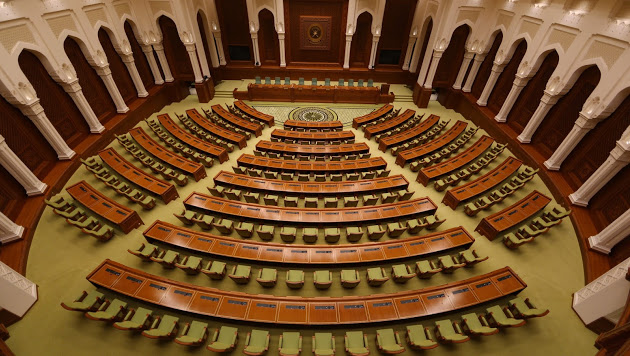
Muscat: The active involvement of Omani women in political life has witnessed a significant upsurge, particularly in their enthusiastic participation in the election of members for the tenth term of the Majlis Al Shura.
In the election for the tenth term of the Majlis Al Shura, scheduled for Sunday, a notable 738 candidates are vying for seats, of whom 31 are women.
Impressively, the total number of registered voters have reached 753,690, with 362,844 of them being women. Noteworthy is the fact that 91 percent of these voters have registered via the “Intakhib” application, while the remaining 9 percent have registered through the elections website.
The North Al Sharqiyah Governorate led in the number of applications for transferring voter registration, with 3,512 applications received. Additionally, the age group between 31-40 years had the highest number of registered voters, totaling 179,487 individuals of both genders.
Sheikha Tamima bint Mohammed Al Mahrooqi, Advisor for Administrative Affairs for the Chairman of the National Records and Archives Authority, emphasised that the Basic Law of the State guarantees women’s rights to express their opinions through various channels. She highlighted the pivotal role of Omani women, attributing it to their education and culture, which empowers them to assume higher positions within the state.
She further stressed that Omani women receive education, training, and prenatal healthcare, enabling them to actively participate in various fields.
Dr. Fawziya bint Saif Al Fahdi, a researcher in Arabic literature and criticism holding a doctorate in Arabic language and literature, stressed that standing as a candidate for membership in the Majlis Al Shura is a constitutional right enshrined in the law. She underlined that women’s voices represent the family unit within society, allowing them to actively engage in discussions and express their opinions. Dr. Fawziya also drew attention to several pressing societal issues, such as unemployment, education development, and the enhancement of skills for higher education graduates, all of which the tenth term of the Majlis can address.
Dr. Yasmin bint Shinan Al Balushi, Advisor at the Royal Academy of Management, underscored the principle of gender equality within the Basic Law of the State.
This principle has granted Omani women the rights to education, healthcare, and participation in decision-making processes. She also hailed the substantial contribution of Omani women to the modern renaissance in the Sultanate of Oman, which has enabled them to exercise their right to vote and stand as candidates in various councils and boards, including the Majlis.
Makiyah bint Hasan Al Kamzari, assistant to the principal of Qada Basic Education School, underlined the vital significance of Omani women standing as candidates for the Majlis.
She said that issues of concern are not exclusive to one gender, as they encompass the same dimensions and goals. For example, employment opportunities pertain to both women and men, and labour laws account for the individual’s unique circumstances.
Amal bint Talib Al Jahwari, a researcher specialising in women’s affairs and a political empowerment trainer, highlighted the immense significance of women’s political participation and their presence in elected councils and boards in achieving national objectives.
Dr. Auhoud bint Said Al Balushi, Chief Executive Officer of the Women’s Studies Centre, acknowledged the remarkable progress made by Oman since the 1970s and recalled that Oman was the first GCC state to grant women the right to vote and stand as candidates in elections.
However, she noted that there is still work to be done to ensure the meaningful participation of women in decision-making positions.
Ikram bint Al Waleed Al Hinai, a specialist in mental health and counselling, pointed out that the presence of women in the Majlis A’Shura reflects Oman’s unwavering commitment to enhancing the political participation of Omani women. This involvement plays a crucial role in developing women’s leadership skills and empowers them to advocate for women’s rights.